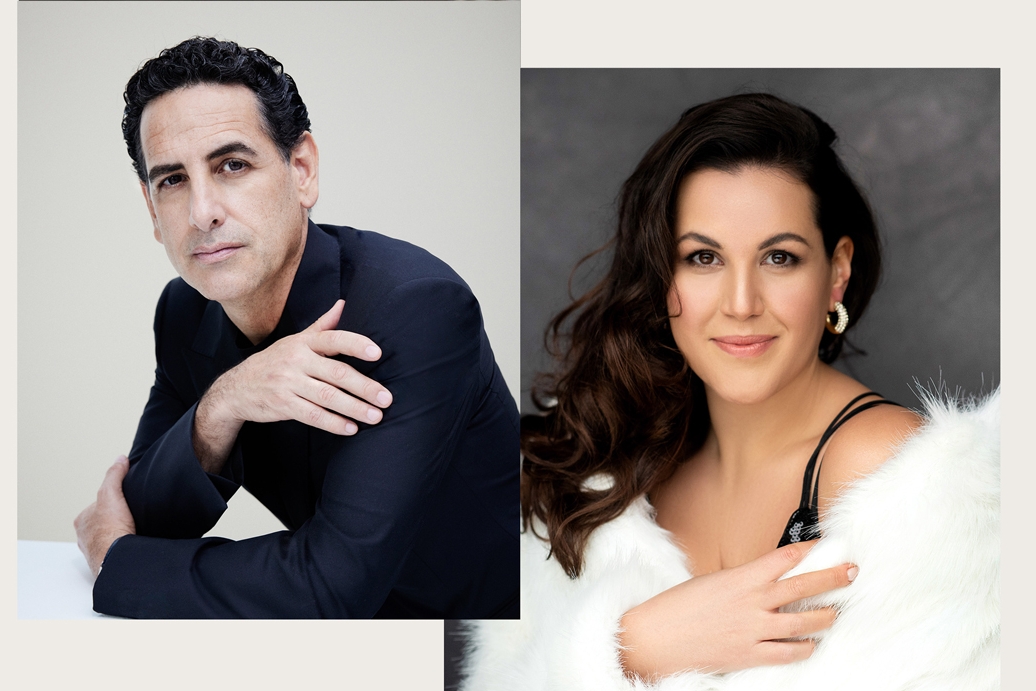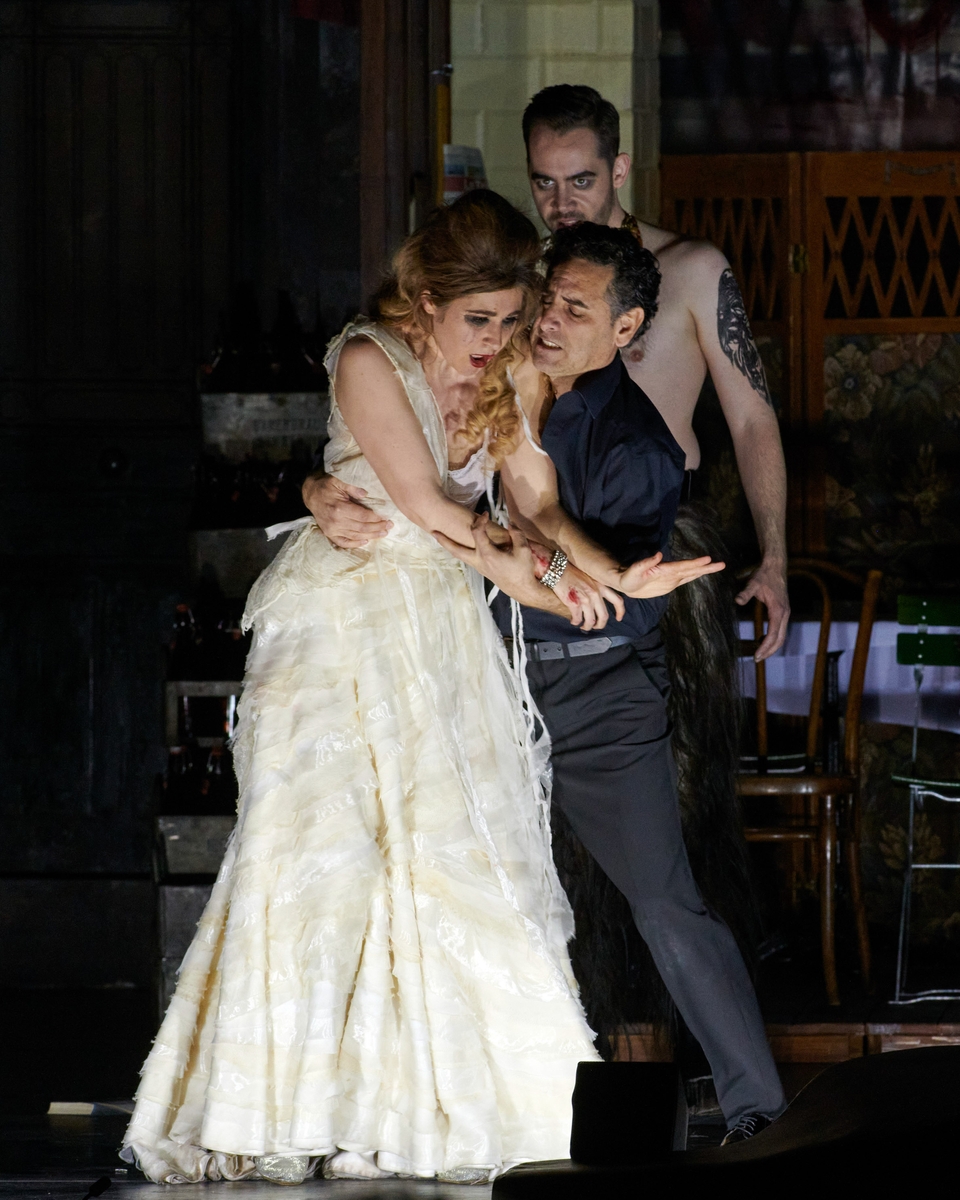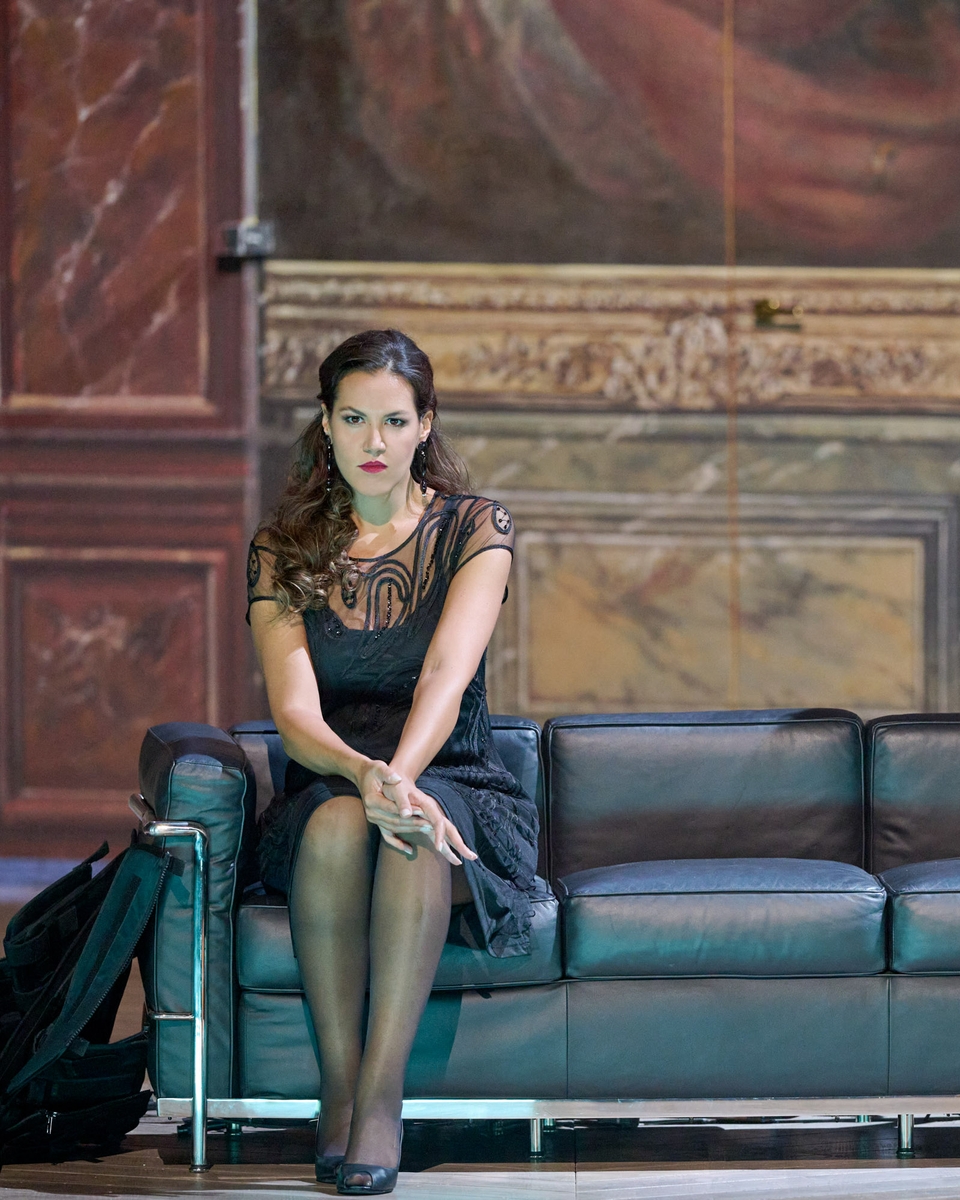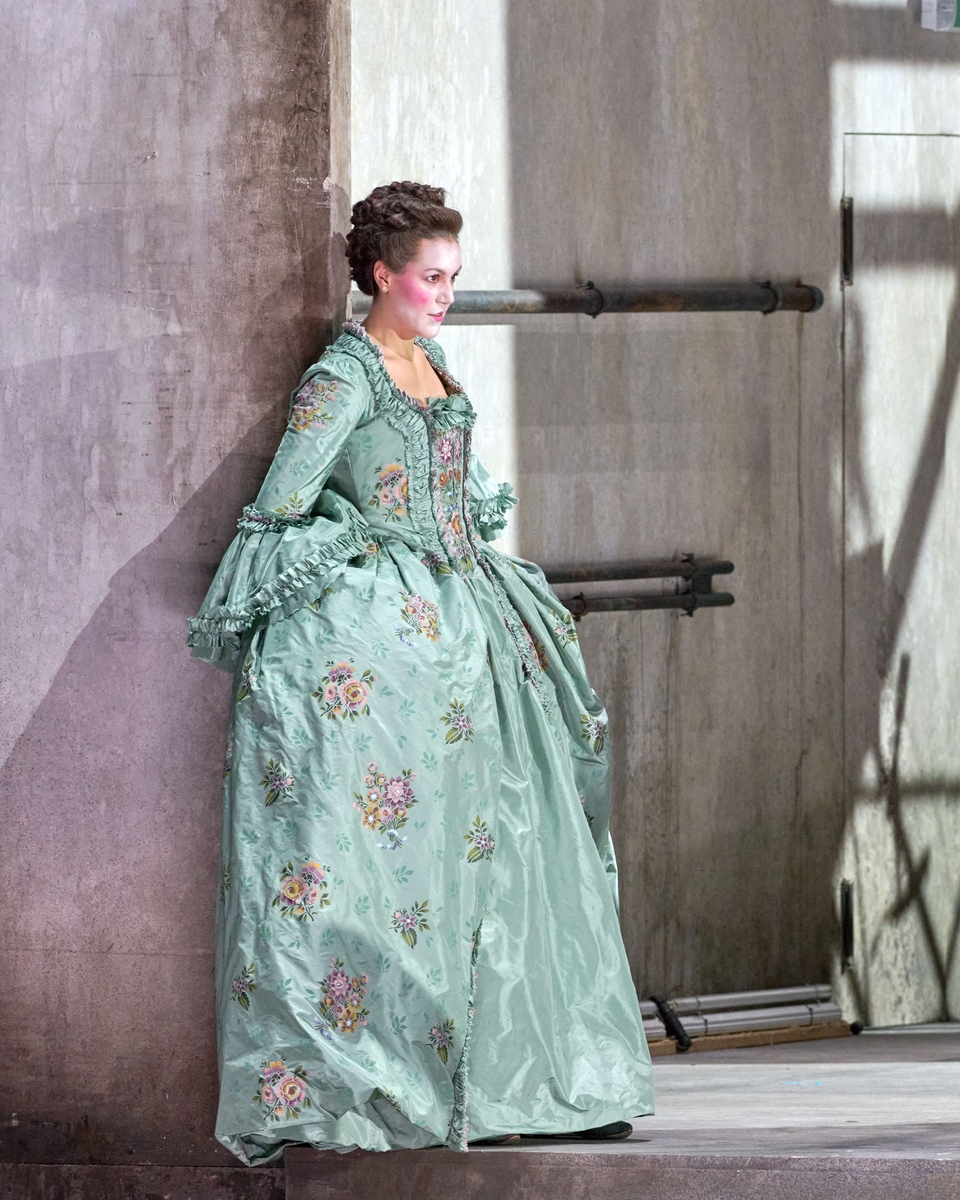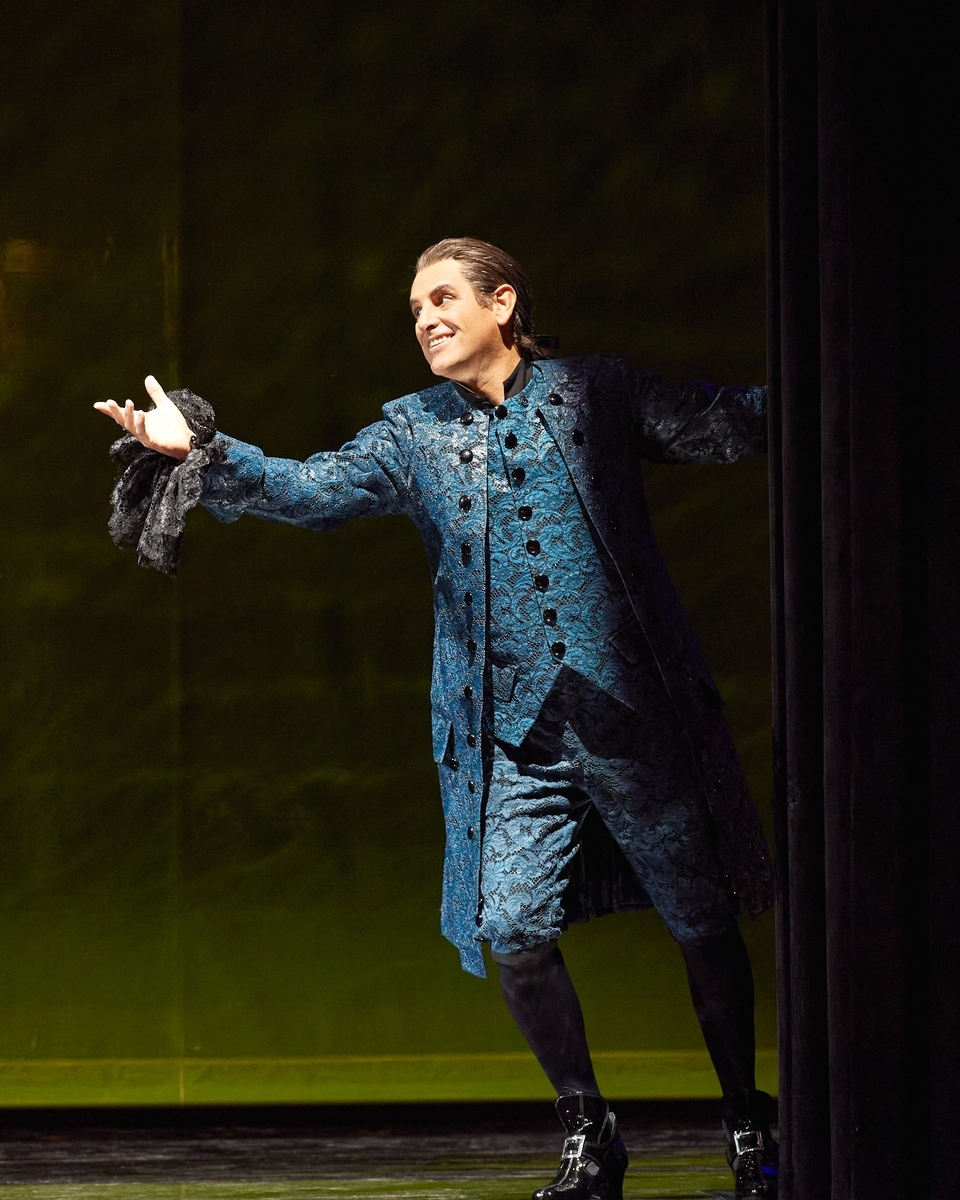What »Norma« still tells us today
Interview |
How timeless is Norma? What can still touch the audience of the 21st century?
Juan Diego Flórez: Although the story is set in a historical Druid context, the characters struggle with universal emotions such as love, jealousy, betrayal and remorse. Bellini's elegant and powerful music conveys these feelings in a way that also appeals to modern audiences. Norma, Pollione and Adalgisa each show very human struggles, which makes Norma captivating and timeless. Despite the historical distance, the emotional truths of the opera are immediately relatable and that is why the work continues to captivate us.
Norma and Pollione are both role debuts. How did this come about? Why now?
Federica Lombardi: Norma is always a milestone for a singer. When I was asked by the State Opera for this production, I was very honored. But I still paused for a moment before accepting. Because we all know that Norma is not an easy role, it is incredibly demanding both musically and dramatically. But having sung Donizetti's Anna Bolena, I know that I am also ready for Norma. Ready to interpret this role with my voice, with my personality. And ready to take on the challenge.
Great minds and composers such as Schopenhauer, Halévy and Wagner admired the opera Norma. Why? What makes this opera so special?
Juan Diego Flórez: Norma embodies timeless, universal themes: Love, betrayal, duty and redemption. Bellini's talent for sublime melodies is on full display here, conveying deep human emotions in a profoundly moving way. The opera has a tragic grandeur and purity of expression that captivates the listener from the very first note. Thinkers such as Schopenhauer admired the way Bellini's music, which on the surface seems simple, evokes powerful emotions that captivate audiences across the ages.
Norma is about love, about very strong passions. Pollione is prepared to sacrifice everything for love, for Adalgisa. Even if his music sometimes seems heroic,
he always sings about love, about her.
Norma is not just a role, she is a myth, like Lucia or Violetta. Does such a colossus scare you?
Federica Lombardi: I was a bit apprehensive at the beginning. And even while I was studying the part and exploring the development of the character. Once you get into the character and emotional world of this woman! And we all have this image of an untouchable character in our heads, mysterious. But it was important to me to make Norma more personal and get away from this myth, as you call it. Together with our director Cyril Teste, we want to find a "different" Norma. As I said earlier: She is more human than myth, and we want to show the human side, even if there were many productions that didn't see her that way. Norma is also a mother, a lover. And she goes through all these emotions in the opera. It is also important to me to relate her to the other characters, such as Adalgisa or Oroveso, there is a lot of interaction. In short: even if Norma is often seen as unapproachable - she is not
she is not. She is a human being.
Renata Scotto said that this role is the Mount Everest of opera that you have to climb. A high mountain.
Federica Lombardi: Yes, I love Renata Scotto's Norma! And yes: Norma requires technique, dramatic power, a very precise awareness of your instrument - and also of your whole body. You have to focus on the coloratura, but also on the legato and the dramatic moments. And each of these musical states needs its own interpretation. Apart from that: the Norma singer practically sings half the opera. (laughs). But as challenging as the role is, it gives you a lot in return.
Is the Pollione also a Mount Everest?
Juan Diego Flórez: Norma rightly bears the title as one of the most demanding operatic roles, but Pollione also presents a challenge all of its own. His singing is full of urgency, but also full of beautiful lines and long, expressive phrases. The first aria and the duet with Adalgisa are special moments that are also technically demanding. Pollione has no coloratura or vocal fireworks like Norma, but he too has fascinating moments, expressive and technically demanding, like the other Bellini leading roles.
What challenges you more? The emotional or technical side of the game?
Federica Lombardi: It's all connected. On the one hand, it's about finding the right balance, the right impulses. On the other hand, Norma is of course extremely emotionally demanding: a mother who thinks about murdering her children! The dichotomy of the secrets she has to keep - the relationship with Pollione and the fact that she has to keep the children secret from the world - is simply too much for her at a certain point.
Juan Diego Flórez: Bellini's music is technically demanding and requires sustained legato and precise control; without this foundation, it is difficult to fully convey Pollione's emotional journey. At the same time, the character is consumed by inner conflict, adding intense layers of drama. The balance between the high level of technical execution and the emotional depth of the role is the true test - both aspects are mutually dependent and make Pollione both demanding and highly rewarding.
Does Pollione really love Adalgisa? And at the end of the opera: are his newly kindled feelings for Norma real?
Juan Diego Flórez: Pollione's affection for Adalgisa is genuine, even if it perhaps stems from a longing for something new and uncomplicated. In the course of the tragedy, however, he realizes the depth of his attachment to Norma, especially when he is confronted with her devotion and sacrifice. In the final moments, his reawakened love is expressed and he discovers what really matters.
And how much Federica is there in Norma? How much Norma in Federica?
Federica Lombardi: There is a lot of me in Norma in this production. Because we are working with my personality, we are trying to create something real, a real person, with real feelings, with my feelings. Which isn't that difficult, by the way, because who doesn't feel the same way as Norma? Who doesn't understand her pain, who doesn't suffer with her in this situation? And all the emotions like love, jealousy, anger, revenge... everyone knows that. The reverse question, what do I carry inside me from Norma? Hm, hopefully her strength!
